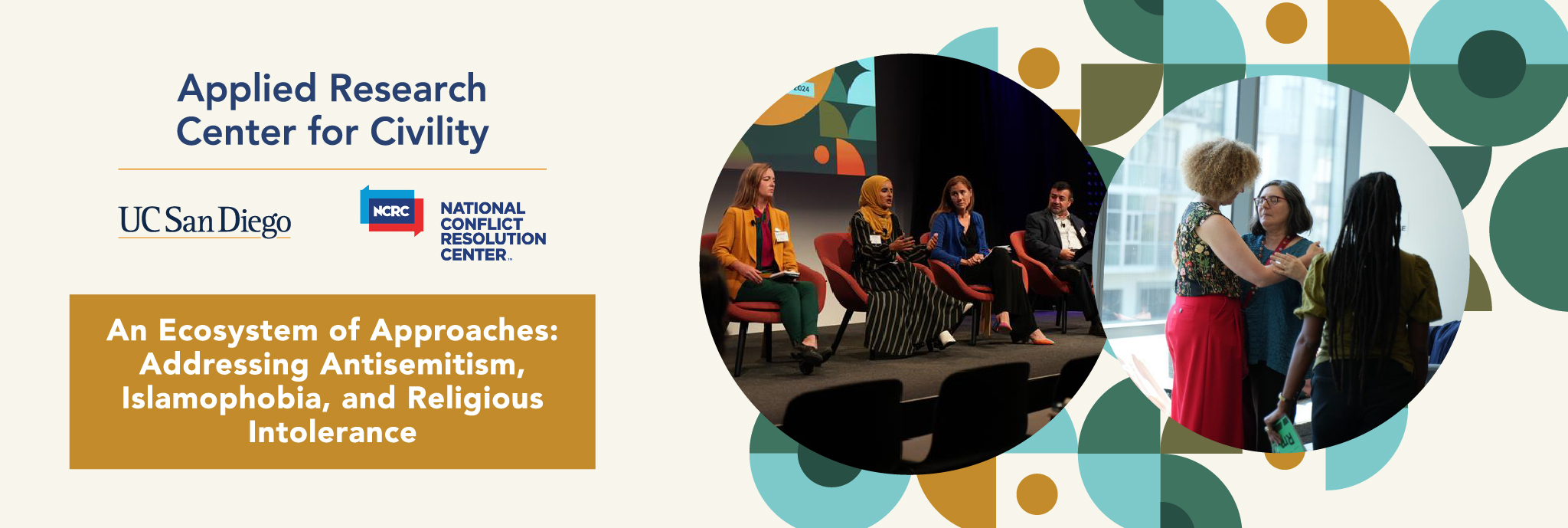
The Impact Paper is Here!
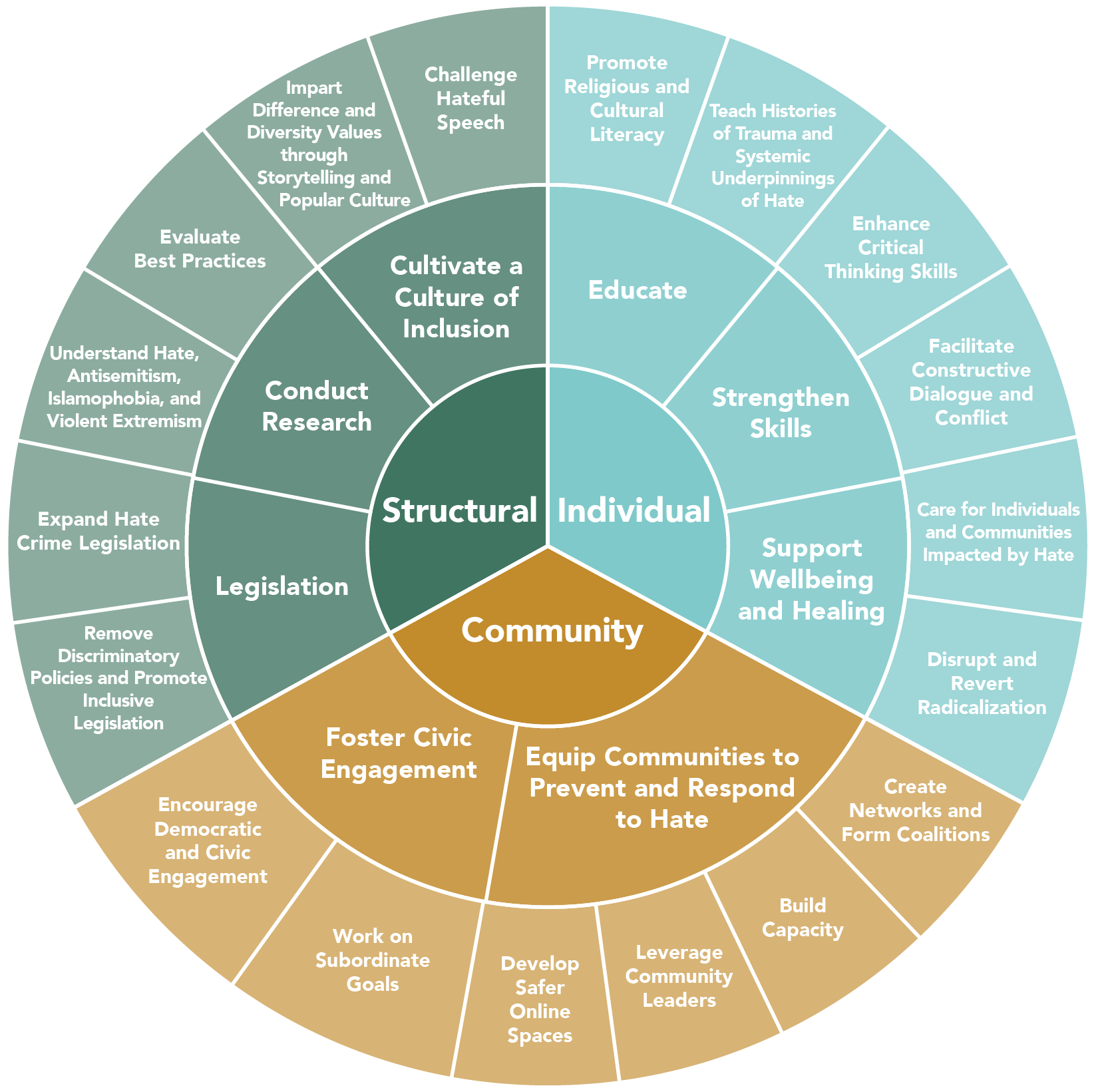
From 2022 to 2024, the Applied Research Center for Civility, a partnership between the National Conflict Resolution Center and UC San Diego, conducted a nationwide study examining the efforts of organizations across the U.S. to address religious intolerance and mitigate the harms of antisemitism and Islamophobia.
This research culminated in the publication of “An Ecosystem of Approaches: Addressing Antisemitism, Islamophobia, and Religious Intolerance,” a comprehensive report showcasing initiatives that reduce hate and bias while fostering belonging, trust, and understanding within diverse communities.
On September 23, 2024, the report was unveiled at a national conference, convening leaders and experts from community organizations, government agencies, academia, and advocacy groups.
Explore the resources on this page to learn about impactful strategies for combating religious intolerance, bridging divides, promoting social wellbeing, and empowering individuals to champion justice and inclusion.
Watch Videos from the Conference
The September 23, 2024 conference was a valuable time of discussion and reflection from people around the country. Even if you didn’t attend, you can watch and share the conference recap and the full video presentation of the impact paper, An Ecosystem of Approaches: Addressing Antisemitism, Islamophobia, and Religious Intolerance.
Individual Level Approaches
Individual-level approaches to combating religious intolerance typically focus on targeting harmful beliefs, attitudes, and behaviors, either directly or indirectly, by supporting the needs of individuals and building individual capacity. These interventions educate individuals, support their well-being and needs, and buffer against well-known risk factors.
Education that focuses on improving awareness and knowledge can cover many different topics from religious and media literacy to forms of bigotry, systems of oppression, and historical education. Skill-building offerings in this field typically try to support self-awareness or interpersonal interactions, such as critical thinking and constructive dialogue. Supporting individual healing and mental well-being can help victims of hate, reduce individual risk factors for engaging in violent behaviors, and disrupt radicalization.
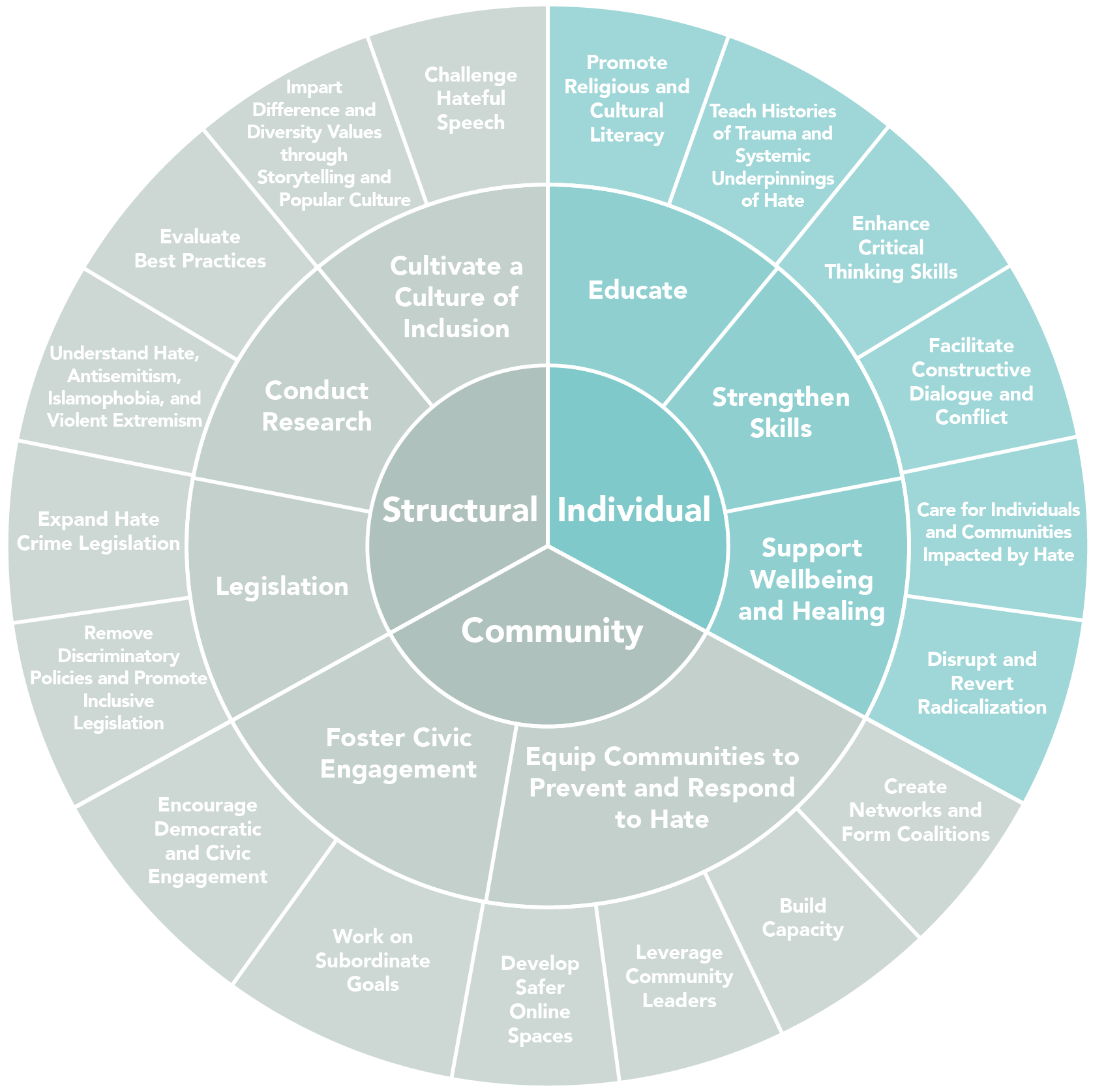
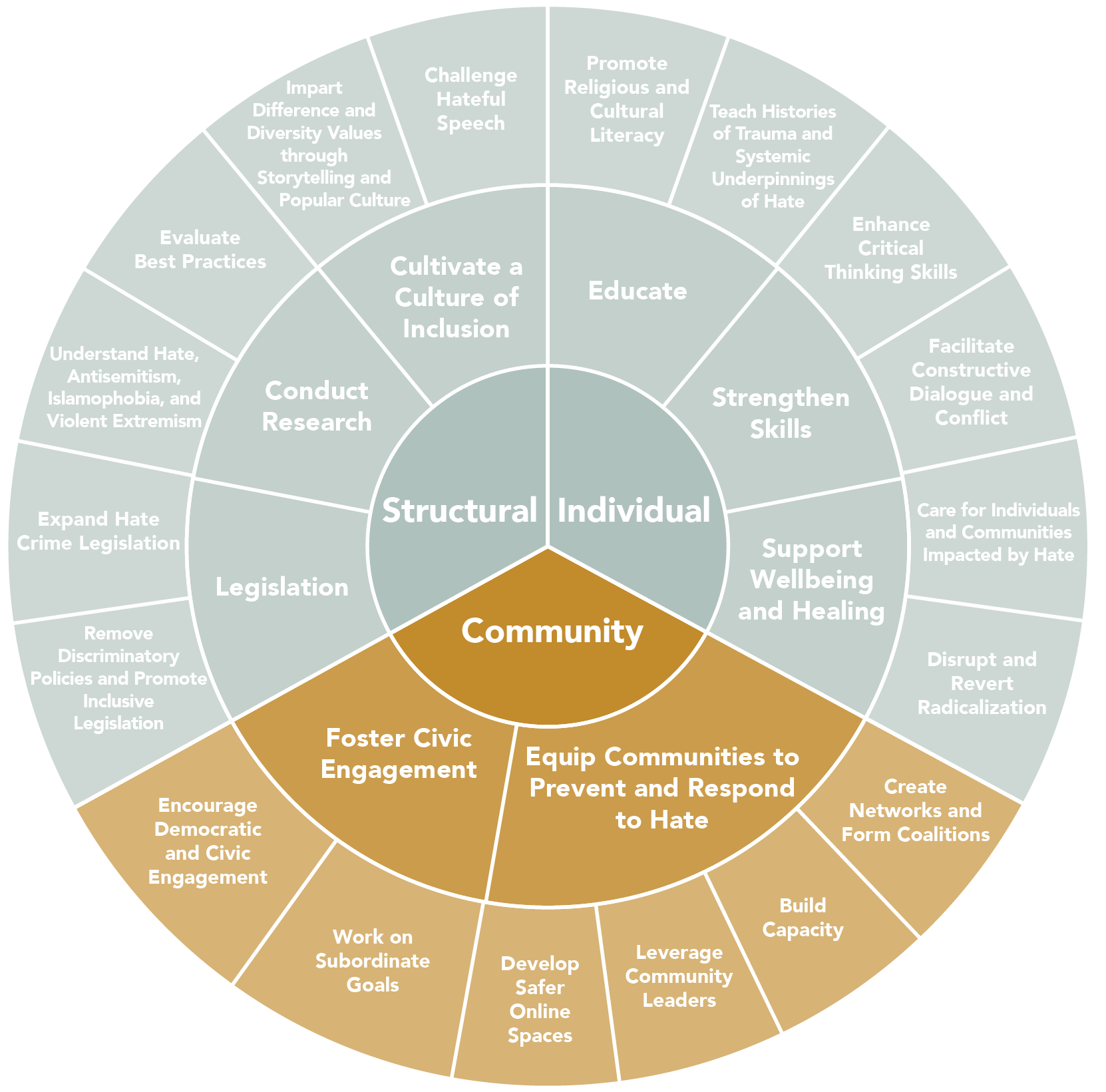
Community and Interpersonal Approaches
Community and interpersonal approaches to addressing antisemitism and Islamophobia include working across differences, equipping and empowering the community to respond to cases of hate, and building community resilience for the prevention of and in response to cases of antisemitic and Islamophobic attacks. Collaboration and working with others, often across differences, are key to these approaches.
Organizations often work across differences by establishing organizational networks and coalitions with organizations of different faiths and backgrounds, by joining government coalitions to address these issues, and by developing capacity and training local leaders. All in all, these practices help build community resilience and relationships between individuals.
Structural and Institutional Approaches
Organizations operating at the structural level aim to achieve enduring change related to antisemitism and Islamophobia by influencing policies and broad-level change. Instead of focusing on directly modifying individual attitudes, beliefs, or behaviors, or fostering a sense of belonging within the community, or developing networks of local organizations, they target changes at the policy or cultural level. Their approaches include ensuring just governance and inclusive legislation, developing research that can motivate institutional change, evaluating the impact of interventions, and cultivating a mass culture that sees intolerance as unacceptable.
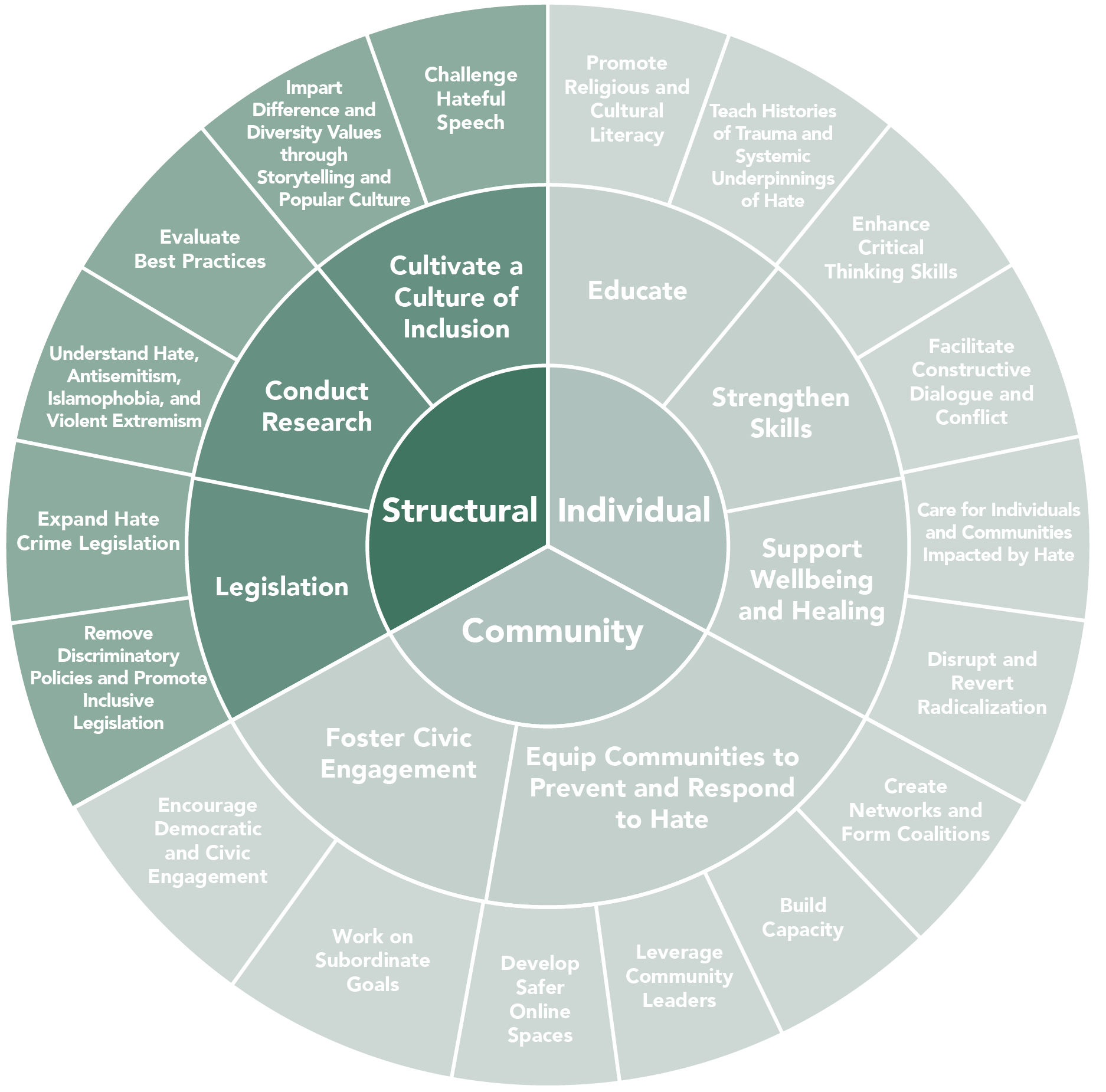

Ecosystem of Approaches
View all three approaches to addressing religious intolerance — individual, community, and structural — in one easy-to-read document. Make sure to share with others!
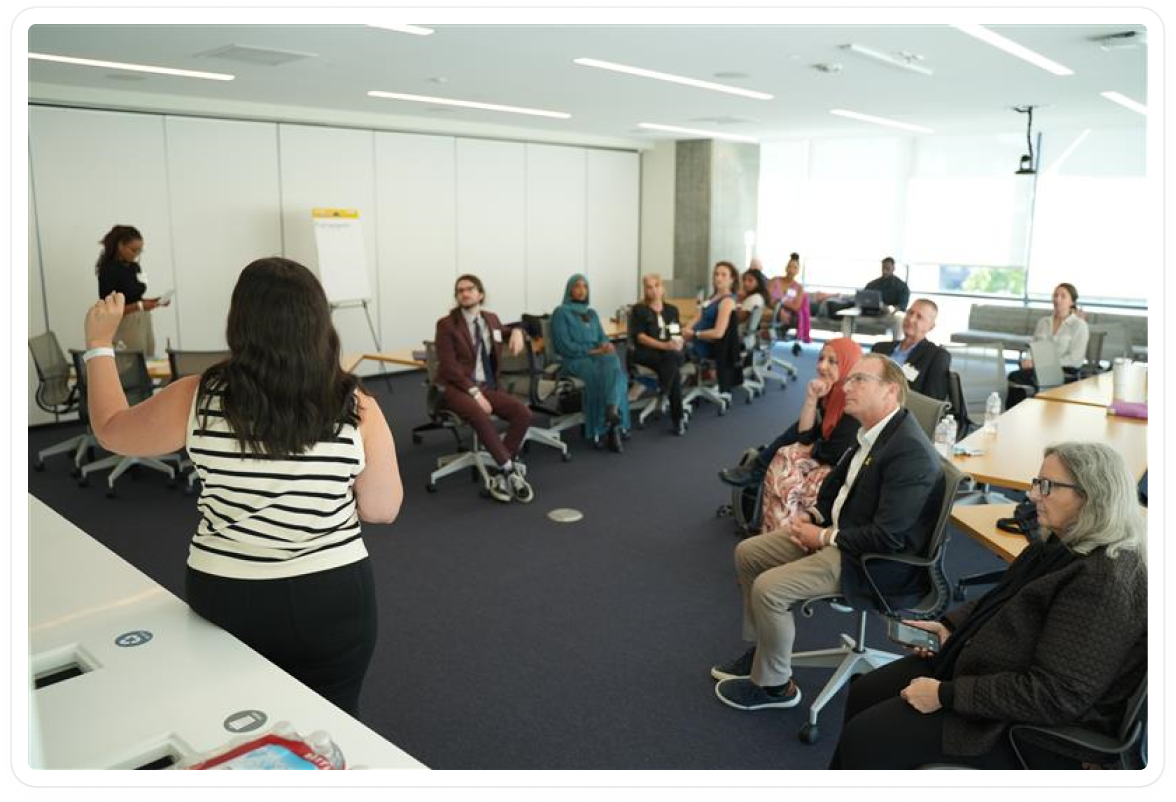
Index of Organizations, Initiatives, Resources, Toolkits
Check out this comprehensive list of resources to support you and your community in addressing religious intolerance.
About The Applied Research Center For Civility
The National Conflict Resolution Center and UC San Diego together launched the Applied Research Center for Civility (Center for Civility) to conduct research for action into the methods, dynamics, and best practices for addressing many of society’s most challenging social issues Using NCRC’s programming as a springboard, the Center for Civility designs studies, collects data and conducts quantitative analysis on how we can foster connection in divisive times. Findings will be reported in various formats, including white paper reports, conference proceedings, and academic journal publications.
Questions? Contact Holly Sullivan Gonzalez at hsullivan@ncrconline.com.
